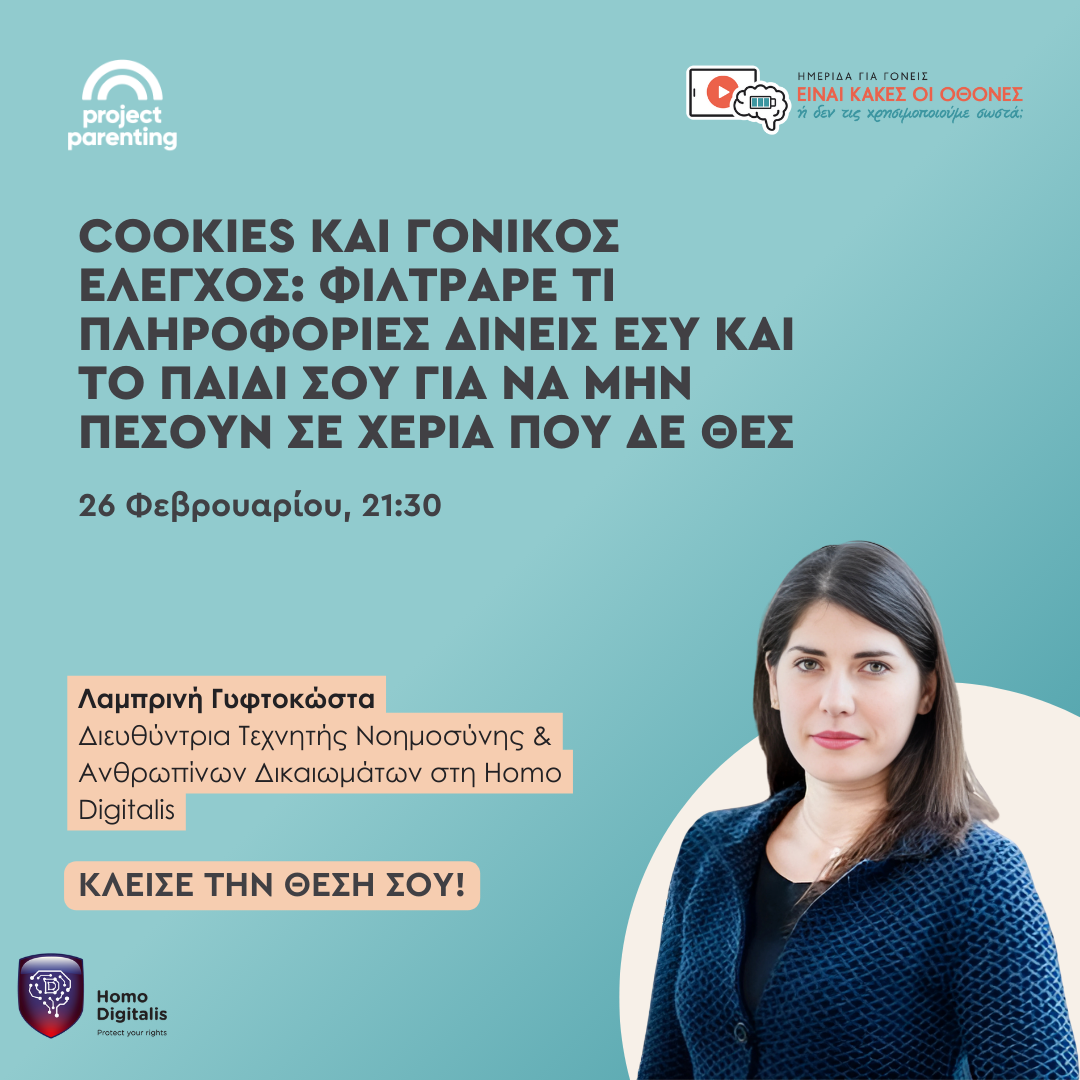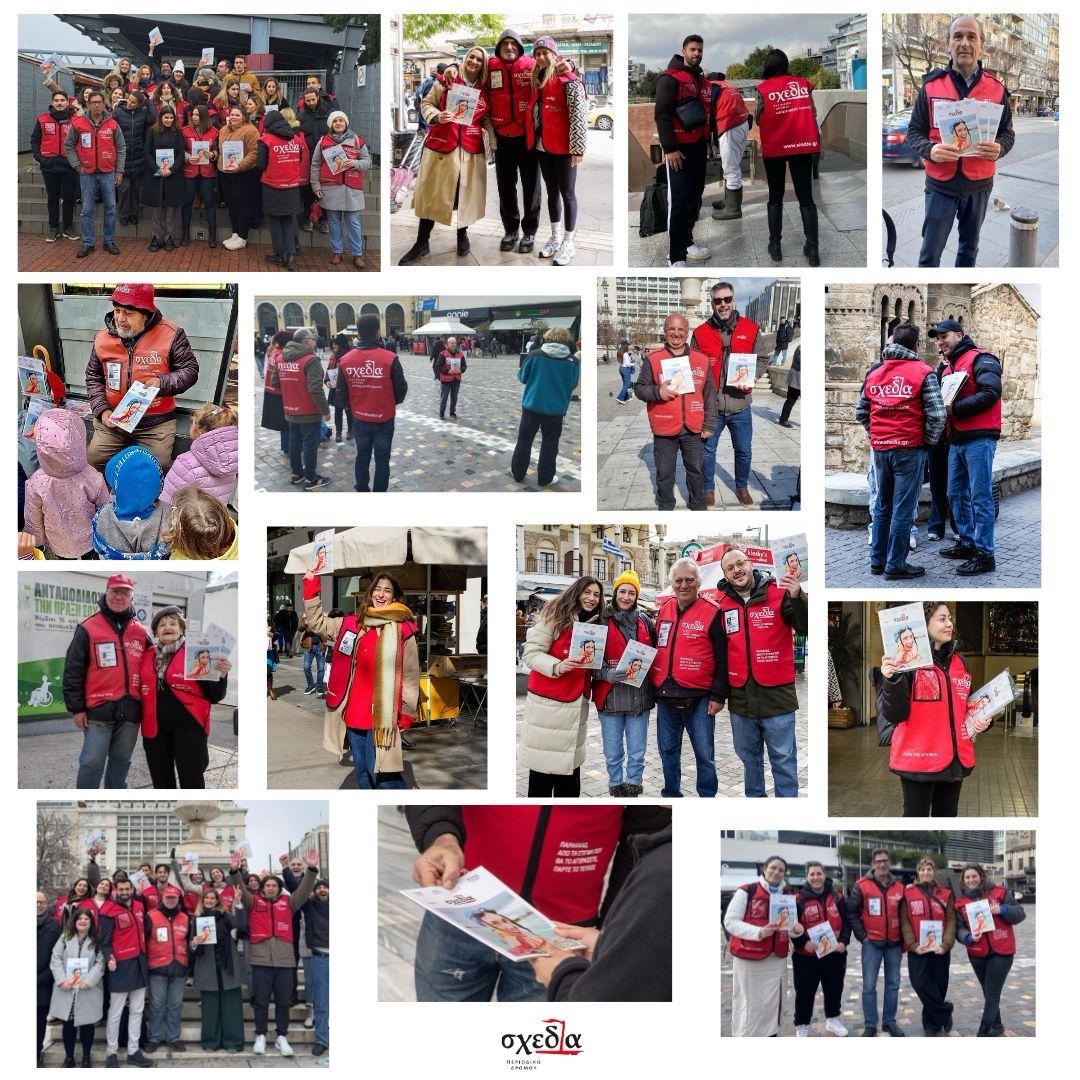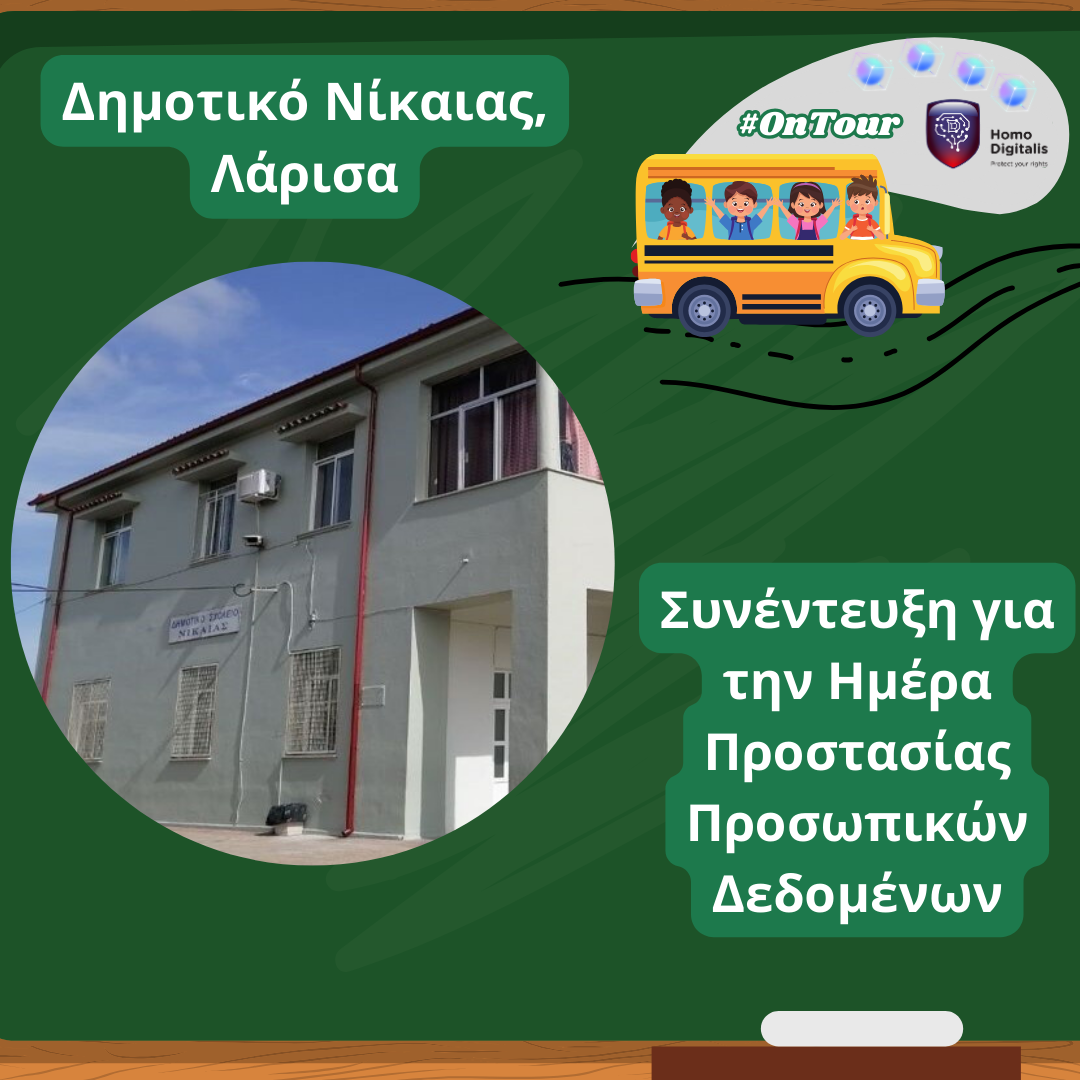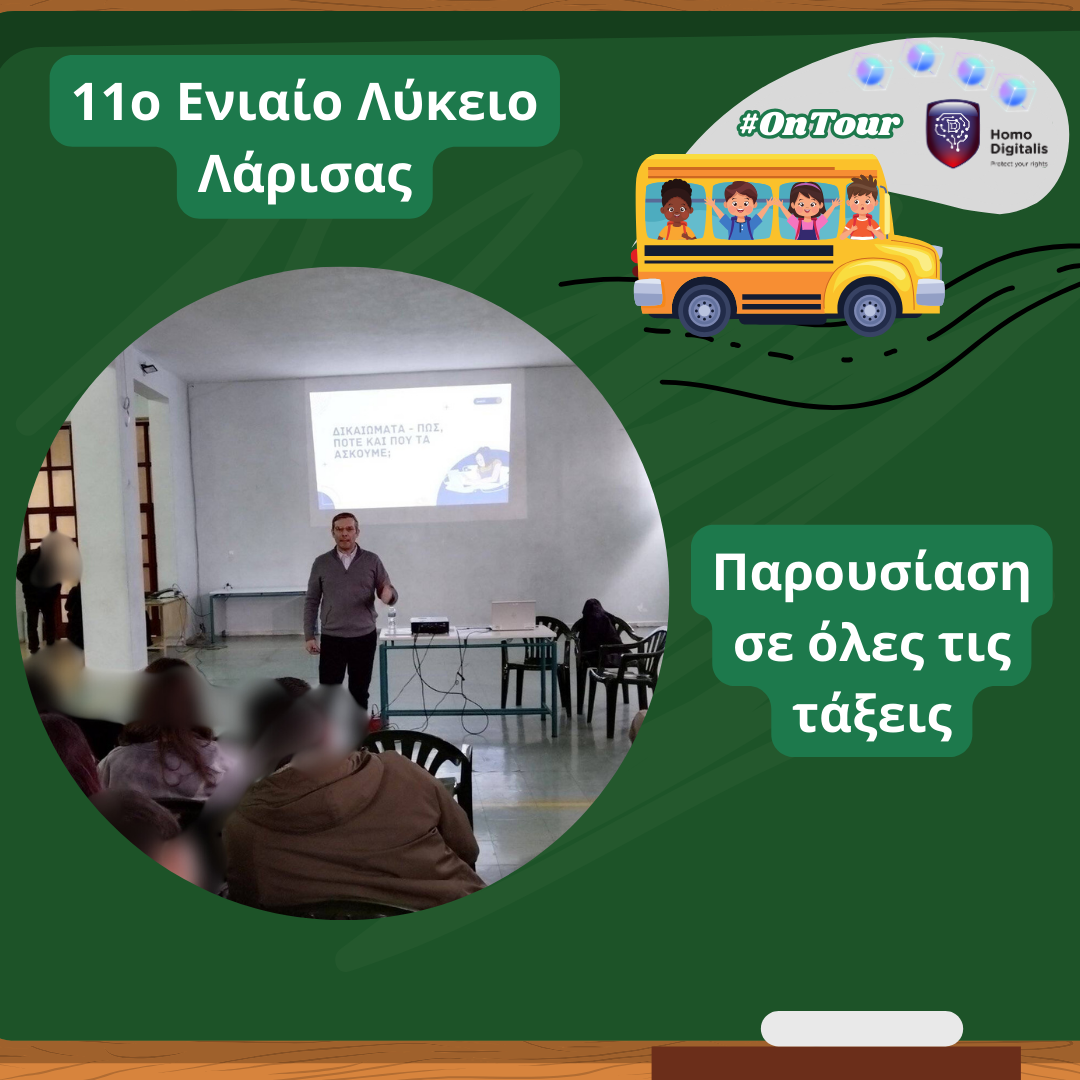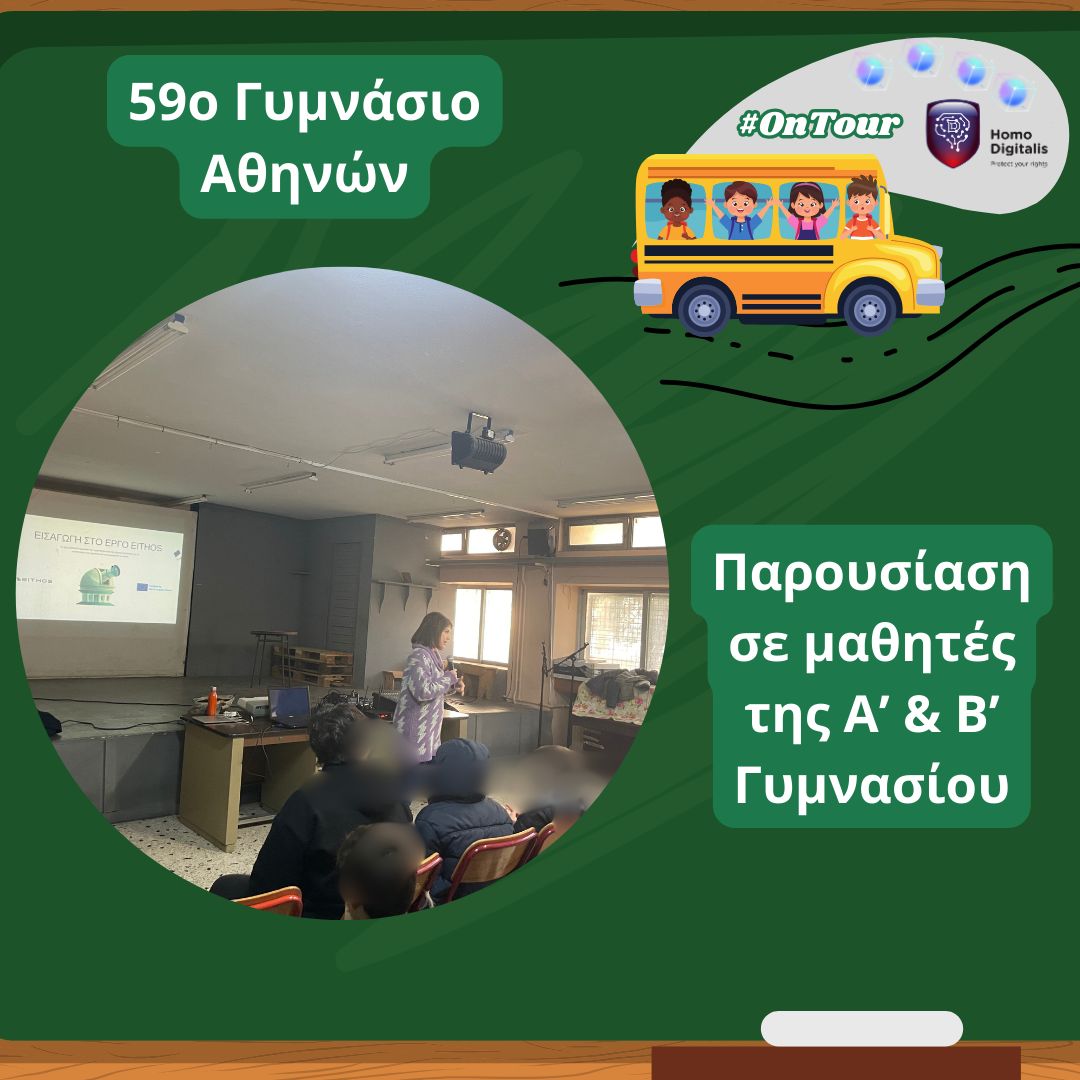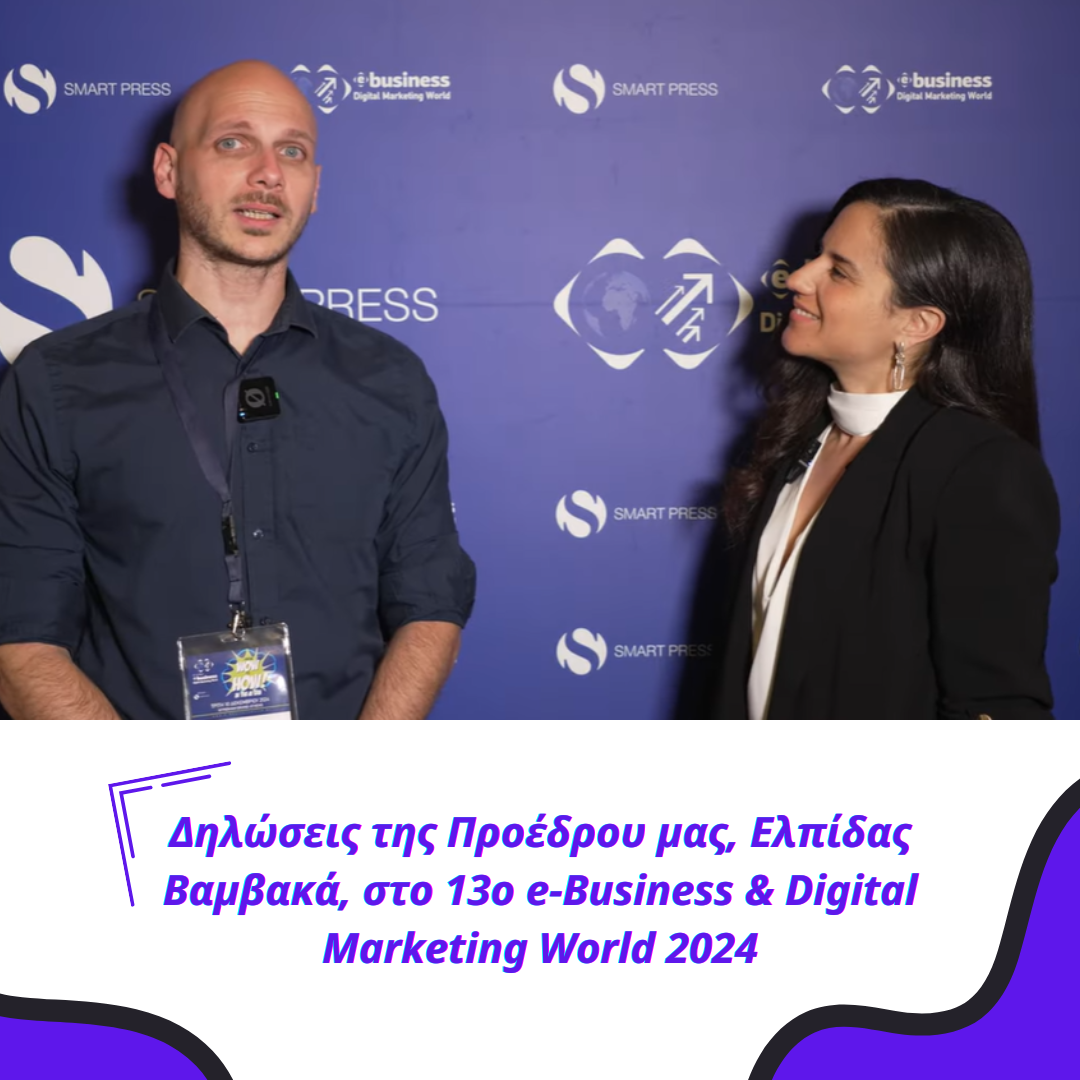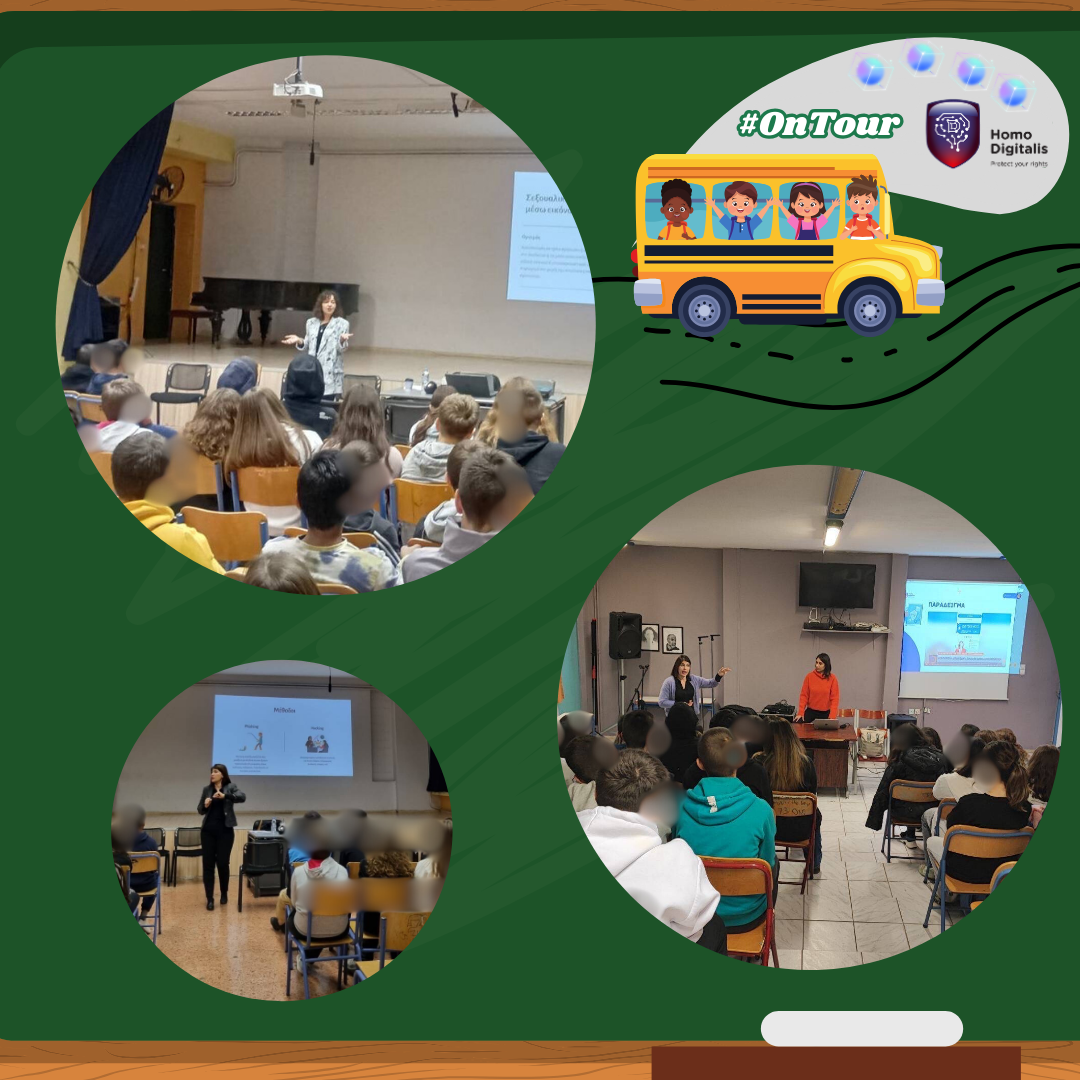Homo Digitalis is participating in the online informational event organized by Project Parenting
Are screens bad, or are we just using them wrong?
Homo Digitalis is honored to participate once again in the digital conference organized by Project Parenting, dedicated to parents. The event takes place today, Wednesday, February 26, from 17:30 to 22:30!
At 21:40, Lamprini Gyftokosta will represent our team, speaking on the topic: “Cookies and Parental Controls: Filter the information you and your child share to keep it from falling into the wrong hands.”
Registrations are free, and you can still sign up to attend a series of insightful talks by experts on various important topics.
Homo Digitalis wore the vest of love participating in the "Seller for an Hour" action of the street magazine "Shedia
On Wednesday, February 5th, Homo Digitalis had the great honor of wearing the vest of love, participating in the awareness-raising action of the street magazine “Shedia.”
At the end of the “Seller for an Hour” action, we would like to extend a big thank you to all the people of Shedia, with whom we had the opportunity to learn about their important initiatives, and to jointly send a message against social exclusion and in favor of solidarity.
You can learn more about the important work and the people of the Shedia magazine here.
We Gave the Most Interesting Interview to the Students of the Nikaias Primary School in Larissa for Data Protection Day
One of the most delightful and wonderful ways we celebrated World Data Protection Day was the online interview given by Lamprini Giftokosta from our team to the fifth-grade class of Nikaias Primary School in Larissa on January 28th! The questions were MANY!!!… ranging from what personal data means, what we are celebrating today, to whether artificial intelligence has a mind, if it knows everything, or if it makes mistakes.
The interview took place as part of a school competition in which the young journalists are participating. We eagerly await the article they will publish and wish them the best of luck!!!
We sincerely thank the educator Vili Karayiorgou and the Nikaias Primary School in Larissa for the flawless cooperation in this initiative.
New Volunteer Awareness Actions - 11th Unified High School of Larissa
Last week, we participated in yet another volunteer-driven awareness action, this time at the 11th Unified High School of Larissa!
There, our member and cybersecurity expert, Tasos Arabatzis, spoke to over 80 students and teachers from all high school grades about the rights we have in the digital space, as part of our educational presentation “Digital Footprint.”
We would like to sincerely thank the school’s principal, Mrs. Evangelia Kremetzi, for the kind invitation and excellent cooperation. We also thank Tasos’ company, Bora – Cybersecurity Marketing, which always gives him the flexibility to represent us in schools and other organizations voluntarily during working hours.
If you are interested in learning more about our pro bono awareness actions in schools, exclusively funded by our own resources, or if you are interested in organizing related actions at your school for the new school year, feel free to send us your messages at info@homodigitalis.gr
New Volunteer Awareness Actions - 59th High School of Athens
Last Thursday, January 23rd, we were at the 59th High School of Athens! There, we spoke for 4 teaching hours to over 200 students and teachers from the 1st and 2nd grade of high school about our digital footprint and cyberbullying! Our Director for Human Rights & Artificial Intelligence issues, Lambrini Gyftokosta, and our co-founder Eleftherios Chelioudakis represented us. The content of our presentations also includes material related to online identity theft, developed by the European research project EITHOS, in which Homo Digitalis participates voluntarily in the Ethics Advisory Board.
We would like to sincerely thank Counselor Mrs. Christina Kalfoglou, the Principal Mr. Katsikas, and the Teacher Mr. Sotiris Manousakis for the invitation and excellent cooperation! A big thank you also to the students for their active participation and trust.
If you are interested in learning more about our pro bono awareness actions in schools, exclusively funded by our own resources, or if you are interested in organizing related actions at your school for the new school year, feel free to send us your messages at info@homodigitalis.gr
New Volunteer Awareness Actions - 7th Technical High School of Larissa
Last Wednesday, January 15th, Homo Digitalis member and cybersecurity expert Anastasios Arabatzis spoke to 100 students of the 7th Technical High School of Larissa about our actions. We would like to sincerely thank the teachers for their kind invitation and the students for their attention. More awareness actions are coming up in Larissa in the coming days! Stay tuned!
Statements from our President, Elpida Vamvaka, at the 13th e-Business & Digital Marketing World 2024
The President of Homo Digitalis, Elpida Vamvaka, represented us with a speech at the 13th e-Business & Digital Marketing World 2024, with the central theme: “From WOW to HOW: e-commerce and digital marketing in the AI era!”, which was organized by SmartPress S.A. in December 2024.
Both her speech during the panel she participated in and the statements she gave to the organizers after the conference are now available.
You can view her statements here. You can view her speech and the panel she participated in (04:11:00) here.
The Award-Winning Cartoon Series Super-Cyber Kids Now Has Subtitles
The award-winning cartoon series Super-Cyber Kids, a production by ISC2 Hellenic Chapter, ICSI HELLAS S.A., and Homo Digitalis, with the support of ADACOM Cyber Security, Eurolife FFH, bora, and RESET CONSULTANTS, is now available with Greek subtitles! A big thank you to the amazing Panagiotis Soulos for this significant volunteer initiative!
- How can excessive use of social media negatively impact children’s performance in school or sports?
- Are there risks of personal data leaks and password theft when connecting to third-party WiFi networks?
- How do incidents of cyberbullying occur?
- What connection might cybersecurity have with the evolution of a war like the Trojan War?
- How can a teenage team win a soccer match by spying on their opponents’ social media?
Answers to all these questions and much more are provided in the five episodes of the series, available for free on our YouTube channels here.
We Successfully Completed Our Voluntary Awareness Actions in 10 Schools Across Attica for the Period October–December 2024!
During this school year, from October 2024 to December 2024, Homo Digitalis focused its voluntary awareness efforts on schools in Athens!
With the invaluable support of Education Consultant Ms. Christina Kalfoglou, Psychologist Ms. Elina Kardara, and School Consultant Ms. Maria Panta, we visited 10 schools (public and private junior and high schools) and conducted 16 presentations for approximately 1,400 students, educators, and parents on the topics digital footprint and cyberbullying.
We learned a great deal about the apps children use and the risks they face on various social media platforms. We also discussed the challenges they encounter when trying to report issues on these platforms, often without resolving their problems!
Students shared incidents of cyberbullying and online violence with us, and we talked about ways to address and support them. Educators, on the other hand, expressed their concerns and raised thought-provoking questions regarding the use of mobile phones and artificial intelligence tools in schools.
Yesterday, we concluded our awareness actions for the first trimester of the 2024–2025 school year with an informational event at the 59th Junior High School of Athens, where we spoke with teachers and members of the parents association and teachers about the digital footprint, new digital risks such as deepfakes, misinformation, disinformation, and echo chambers, as well as the Kids Wallet initiative proposed by the Ministry of Digital Governance!
A big thank you to our members, board members, and employees: Sofia Antonopoulou, Niki Georgakopoulou, Lamprini Gyftokosta, and Konstantinos Kakavoulis for their active participation and outstanding contribution to these initiatives!
Together, we are building a safer and more informed digital community!
